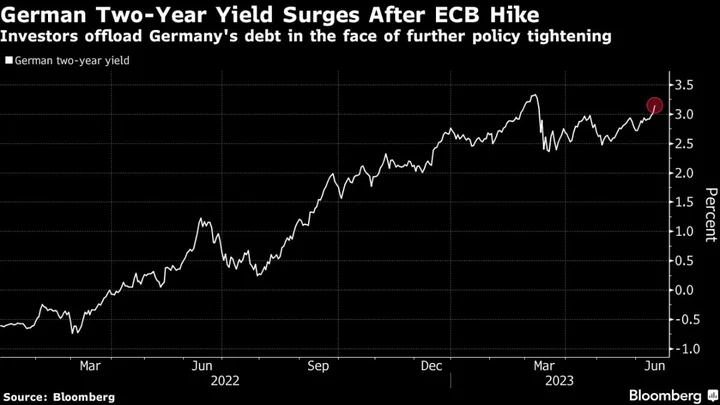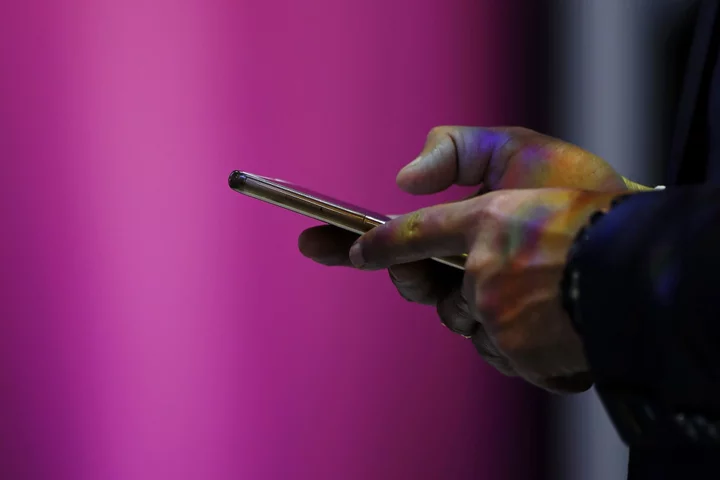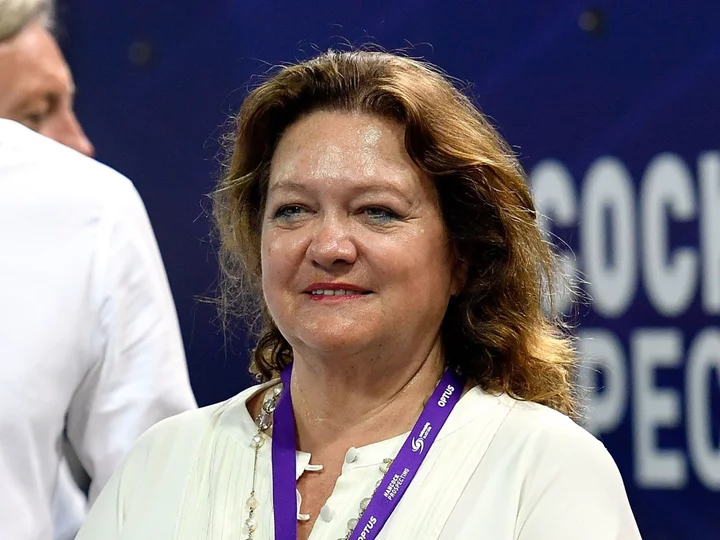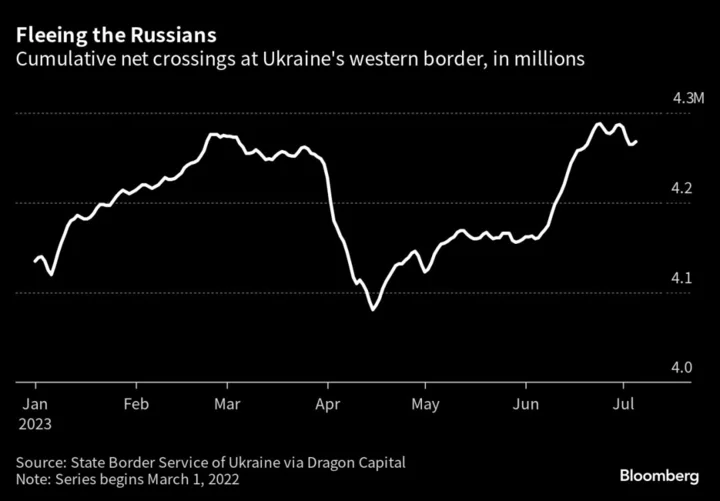The euro gained more than 1% and regional government bonds slumped as traders increased bets the European Central Bank will raise interest rates after officials hiked and signaled more to come.
The common currency jumped to as high as $1.095, the strongest level since mid-May. The yield on two-year German bonds rose, approaching the highest level in a decade, touched earlier this year.
“We expect EUR/USD to test 1.10 in the weeks ahead with risks of a test of 1.12 later in the third quarter,” said Bipan Rai, CIBC’s global head of FX strategy. “Our base case for now is 4% terminal, but we wouldn’t rule out a deposit rate north of 4%.”
The ECB on Thursday raised its deposit rate by a quarter-point, as was widely expected, to 3.50% and increased its inflation forecasts for the coming years. Money-market traders reacted by increasing their rate-hike expectations, implying an almost 80% probability of the ECB raising rates to 4% by October, up from 50% before the decision.
The ECB decision comes after the Federal Reserve kept policy unchanged, but signaled further tightening is likely. European bonds began the day lower and fell further after the rate move.
Euro-area officials also confirmed that they’ll halt reinvestments under their €3.2 trillion ($3.5 trillion) Asset Purchase Program from next month — another tightening move that was flagged at May’s policy meeting.
“This gives the decision a slightly more hawkish tilt and could encourage the repricing of a higher terminal rate,” said Valentin Marinov, head of G-10 FX strategy at Credit Agricole.
The euro has rallied more than 10% from below parity against the dollar last year, on bets the ECB will press on with raising borrowing costs and narrow the interest-rate differential with the Fed.
The yield on two-year German bonds — among the most sensitive to changes in policy — has climbed 2.5 percentage points since the bank kicked off its tightening cycle in July.
The region’s energy shortfall proved less acute than feared, compounding the moves. The economy’s resilience is seen as giving authorities further leeway to increase rates, while fresh ECB projections suggested inflation to moderate more slowly than previously thought.
“The ECB wants and has to be sure that it has slayed the inflation dragon before considering a policy change,” wrote Carsten Brzeski, ING’s head of macro. “We think it would require an economic earthquake for the ECB not to hike in September as well.”
--With assistance from Naomi Tajitsu and Anya Andrianova.
(Corrects date of ECB rate decision in fourth paragraph.)









